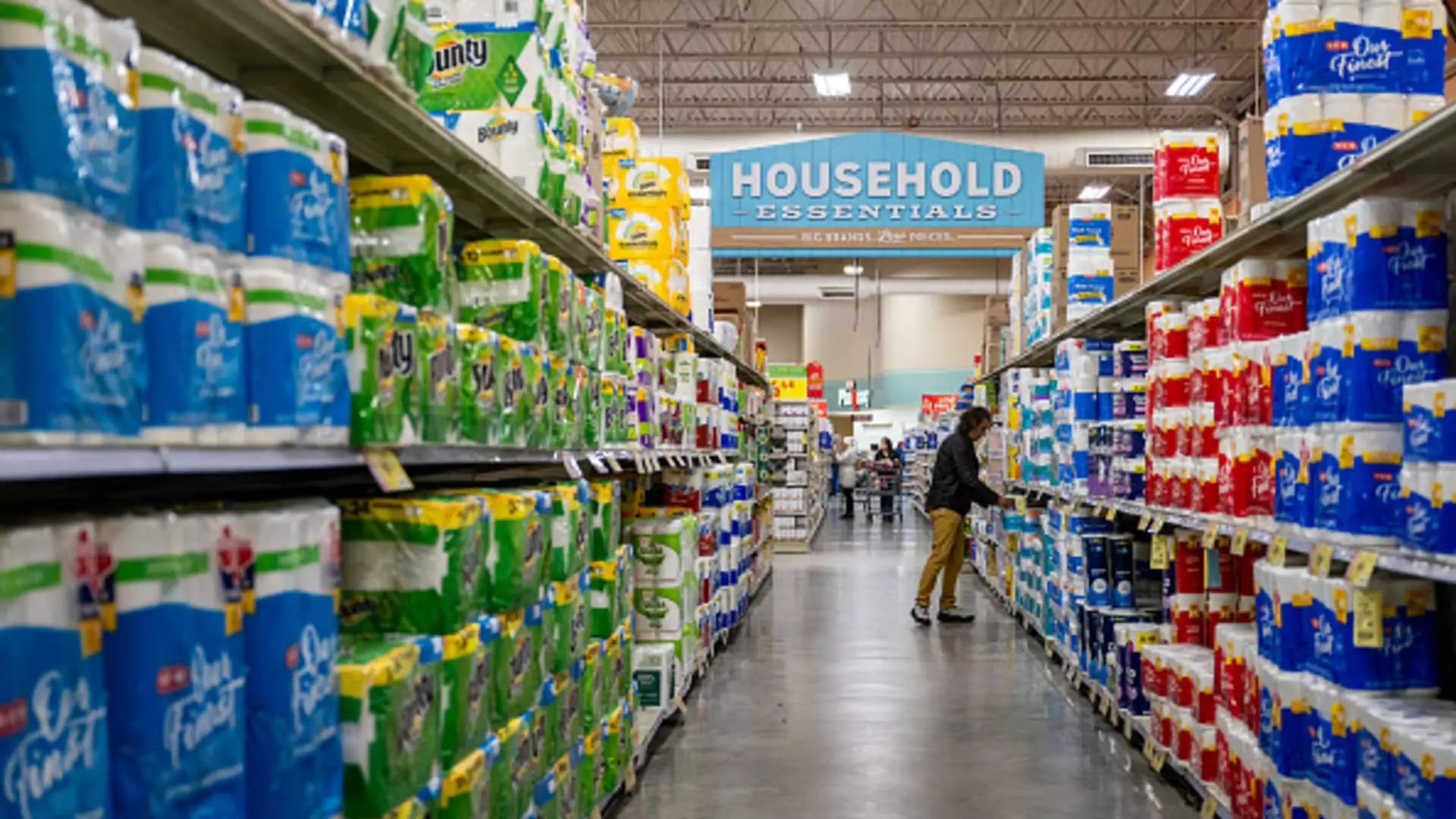In a bid to steer American economic priorities toward a more “America First” agenda, the Trump administration has rolled out a slew of tariffs targeting a staggering array of imported goods from over 180 nations. While such protective measures are rooted in the noble ambition of bringing manufacturing jobs back to the United States, the grim reality is that consumers will likely bear the brunt of this initiative. Coffee, bananas, vanilla, and even essentials like toilet paper are set to see price hikes that could dent household budgets. One can’t help but question the efficacy and consequences of these tariffs, especially when domestic production is inadequate to meet the demands of the average American shopper.
Underestimating Dependency on Imports
In the world of trade, naiveté can be dangerously costly. The Consumer Brands Association (CBA), representing giants like Coca-Cola and Procter & Gamble, has raised red flags over the administration’s approach. Their vice president, Tom Madrecki, pointed out a critical challenge: many essential ingredients are simply not available within U.S. borders. Climate conditions, geographical limitations, and a long history of agricultural shifts mean that products Americans consume daily are heavily reliant on imports. The administration’s “America First” policy, however well-intentioned, fails to acknowledge and respect this dependency. Not recognizing the intricate supply chains in place could lead to a costly backlash no one wants to experience at the checkout line.
Mounting Financial Strain on Everyday Consumers
With tariffs being applied at rates as high as 47% on items like imported vanilla and up to 10% on essential commodities such as bananas, it’s inevitably the everyday consumer who will feel the squeeze. As these price hikes ripple through the economy, what began as a political maneuver could translate into elevated costs for familiar household staples. The prospect of paying more for coffee or vanilla may seem trivial to some, but collectively, these increases can lead to a significant financial burden for families striving to maintain their standard of living. It pits the philosophy of economic nationalism against the practical realities of consumer spending.
Falling Stocks and Rising Costs: A Double-Edged Sword
Interestingly, while tariff announcements triggered considerable downturns in broader market sectors, stocks of consumer staple companies ironically saw a rise. This offers a telling narrative about how investors prioritize stability amid uncertainty. For instance, stocks of Procter & Gamble and Coca-Cola saw upticks as people rushed to secure investments in companies that stand to gain from consistent demand for household necessities. However, this illustrates a chilling fact: while certain companies may profit from the tariffs, American shoppers are left in the lurch. The disparity between rising corporate profits and consumer hardships epitomizes a growing divide that the tariff initiative inadvertently exacerbates.
Long-Term Implications for the Economy
The long-term outlook under these tariff structures is deeply concerning. As American agricultural systems struggle to catch up with consumer demand—resulting from decades of decline in crop production—the repercussions will inevitably create shortages and inflated prices. The CBA notes that more than 90% of oats for food production in the U.S. come from Canada, indicating an unresolved issue where domestic supply can’t meet the needs of the market. When a substantial portion of essential goods hinges on foreign supply chains, tariffs are not simply an inconvenience; they can hinder economic growth, encourage inflation, and create very real discrepancies in food security.
The rhetoric surrounding tariffs can sound uplifting when framed as protecting American jobs. However, the underlying truth is far less rosy. As consumers brace for the unwanted side effects of these decisions—higher costs for everyday goods—the need for agile, nuanced trade policies becomes increasingly apparent. The balance between protecting national interests and ensuring competitive pricing is an intricate one that demands sophisticated strategies rather than broad-stroke tariffs. In a time when inflationary pressures already loom large, a reevaluation of these trade policies is not only timely but essential for safeguarding the economic stability of American households.

